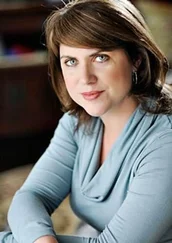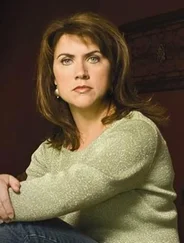She answered her phone just as the last chime was fading. She registered her boss’s voice, a third surprise as he was rarely the one who initiated contact. Then the last of her fogginess faded and years of training took over. She nodded, asked the questions she needed to ask, then had the phone down and clothes on.
A final moment’s hesitation. Firearm or no firearm? Not a requirement anymore, unlike the days when she’d been a Massachusetts state police trooper, but still sometimes practical in her new line of work. She contemplated the brief amount of information her boss had relayed—the situation, the timeline, the number of known unknowns—and made her decision. Gun safe, back of her closet. She rolled the combo with practiced fingers in the dark, withdrawing her Glock and slipping it into her shoulder harness.
Saturday morning, 6:28 A.M., she was ready to go.
She picked up her cell phone, slipped it into her jacket pocket, then crossed the hall to alert her live-in housekeeper/nanny/longtime friend.
Mrs. Ennis was already awake. As with many older women, she had a nearly preternatural ability to know when she’d be needed and generally operated one step ahead. Now she was sitting upright, bedside lamp snapped on, notepad in her hands for last-minute instructions. She slept in an ankle-length red-and-green-plaid flannel nightgown Sophie had given her last year for Christmas. All she needed was a small white cap, and Mrs. Ennis would look just like the grandmother in “Little Red Riding Hood.”
“I’ve been called in,” Tessa said, an obvious statement.
“What should I tell her?” Mrs. Ennis asked. “Her” meant Sophie, Tessa’s eight-year-old daughter. Having lost the only father she’d ever known to violence two years ago, Sophie wasn’t keen on letting her mother out of her sight. It was for Sophie’s sake, as much as her own, that Tessa had resigned from being a state trooper after Brian’s death. Her daughter had needed more stability, to know at least one parent would be coming home at night. Tessa’s new job in corporate investigations generally allowed for nine-to-five hours. Of course, this morning’s call…
Tessa hesitated. “From what I can tell, the situation is urgent,” she admitted. “Meaning it might be a day or two before I return. Depends on what kind of juggling I have to do to gain traction.”
Mrs. Ennis nodded, didn’t speak.
“Tell Sophie she can text me,” Tessa said at last. “I don’t know if I’ll always be able to answer my phone, but she can touch base by text and I’ll answer.”
Tessa nodded as she said the words, satisfied with that answer. Sophie needed to be able to reach her mother. Whether with the touch of her hand, or the push of a button, Sophie simply needed to know, at all times, that her mother was there.
Because once, Tessa hadn’t been, and even two years later, those kinds of wounds left a mark.
“She has gymnastics this morning,” Mrs. Ennis said. “Perhaps she can invite a friend over afterward. That’ll keep her busy.”
“Thank you. I’ll try to call before dinner, definitely before bedtime.”
“Don’t worry about us.” Mrs. Ennis sounded brisk now. She’d been caring for Sophie since she was a newborn, including the long years Tessa had spent patrolling on graveyard shift. There was nothing involving the household or Sophie that Mrs. Ennis couldn’t handle, and she knew it.
“Go on now,” Mrs. Ennis said, waving her hand dismissively toward the door. “We’ll be fine.”
“Thank you.” Tessa meant it.
“Take care of yourself.”
“Always.” She meant that, too.
Tessa eased down the darkened hallway. Her footsteps moved slower than she would’ve liked, pausing before her daughter’s room. Going in, waking her sleeping child would be an act of selfishness. So she contented herself with standing in the open doorway, peering across the dusky room until she could make out the tumble of her daughter’s dark brown hair across her light green pillow.
Two night lights burned, as Sophie was no longer comfortable with the dark. Tucked between her hands was her favorite doll, a Raggedy Ann–like toy named Gertrude with brown yarn hair and dark button eyes. After Brian’s death, Gertrude wore a Band-Aid on her chest. Because her heart hurt, Sophie would say, and Tessa would nod in understanding.
Sophie wasn’t the only one with scars from two years ago. Each time Tessa walked out the door now, whether heading to work, going for a run or popping down to the grocery story, she felt the separation from her child as a physical ache, a tearing of herself in half so that she couldn’t be whole until she returned home again. And sometimes she still dreamed of snow and blood, of reaching for her husband’s falling form. But just as often, she dreamed of herself still holding the gun, still pulling the trigger.
Tessa made it down the hallway. She paused in the kitchen long enough to scrawl a simple note and place it on her daughter’s chair. She wrote: Love you. Be home soon…
Then she took a deep breath and walked out the door.
TESSA HADN’T BEEN ONE OF THOSE KIDS who grew up dreaming of being a cop. Her father was the neighborhood mechanic, a blue-collar guy much more interested in his daily Jack Daniel’s than his only daughter. Her mother had existed as a shadowy figure who rarely left the back bedroom. She’d died young, leaving Tessa to mourn the idea of her more than the actual person.
Left to her own devices, Tessa had made the kinds of decisions that had left her alone, pregnant and destitute. And just like that, she’d grown up. Failing herself had never seemed such a big deal, but there was no way she was going to fail her child. First order of business, identify a career path suitable for a single mom equipped with little more than a GED. That had led her to the police academy, where she’d spent six long months learning to shoot, fight and strategize. She’d surprised herself by proving to have a knack for all three.
Even more so, she’d loved it. The job, the uniform, the camaraderie. Four years, she’d patrolled the highways of Massachusetts, collaring drunks, defusing fights and handling domestic disputes. Four whole years, she’d had a purpose and felt as if she was genuinely making a difference. She’d been happy.
She trusted in her training now, as she turned into downtown Boston, searching for a parking space while simultaneously beginning her analysis of the crime scene. The Denbes lived in Back Bay, one of the wealthiest neighborhoods in Boston, as would befit the head of a hundred-million-dollar company. The area featured elegant rows of stately townhomes, nestled close enough together that someone should have heard something, but expensive enough that the walls were no doubt filled with some insulation specially designed to give the rich the feeling of being on their own deserted island even amid the sea of downtown urban living.
No ME vehicle and no mobile command center, she noted, which made sense, given the call had come in as a simple B and E. On the other hand, she counted over six patrol cars, plus several unmarked detectives’ vehicles. Lot of manpower for a break-in. Not to mention the presence of multiple detectives… Clearly the police were moving along from their initial assessment of the situation.
Tessa pulled around Marlborough Street to the back alley where lucky Back Bay residents had reserved parking, and even luckier ones, private garages. She found an empty space and grabbed it. Totally illegal, of course, but given that she now spotted additional detectives’ vehicles, she wasn’t the first investigator to take advantage. She grabbed her placard identifying her vehicle as Special Investigations and stuck it on the dash of her Lexus. She’d probably get ticketed out of spite, but it was what it was.
Читать дальше












